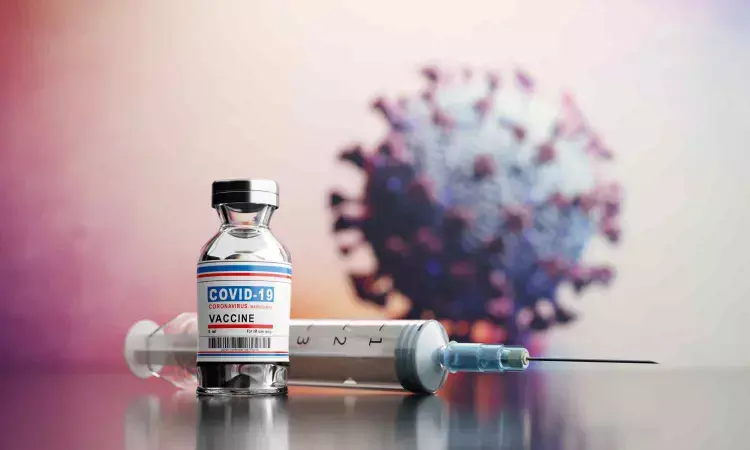- Home
- Medical news & Guidelines
- Anesthesiology
- Cardiology and CTVS
- Critical Care
- Dentistry
- Dermatology
- Diabetes and Endocrinology
- ENT
- Gastroenterology
- Medicine
- Nephrology
- Neurology
- Obstretics-Gynaecology
- Oncology
- Ophthalmology
- Orthopaedics
- Pediatrics-Neonatology
- Psychiatry
- Pulmonology
- Radiology
- Surgery
- Urology
- Laboratory Medicine
- Diet
- Nursing
- Paramedical
- Physiotherapy
- Health news
- Fact Check
- Bone Health Fact Check
- Brain Health Fact Check
- Cancer Related Fact Check
- Child Care Fact Check
- Dental and oral health fact check
- Diabetes and metabolic health fact check
- Diet and Nutrition Fact Check
- Eye and ENT Care Fact Check
- Fitness fact check
- Gut health fact check
- Heart health fact check
- Kidney health fact check
- Medical education fact check
- Men's health fact check
- Respiratory fact check
- Skin and hair care fact check
- Vaccine and Immunization fact check
- Women's health fact check
- AYUSH
- State News
- Andaman and Nicobar Islands
- Andhra Pradesh
- Arunachal Pradesh
- Assam
- Bihar
- Chandigarh
- Chattisgarh
- Dadra and Nagar Haveli
- Daman and Diu
- Delhi
- Goa
- Gujarat
- Haryana
- Himachal Pradesh
- Jammu & Kashmir
- Jharkhand
- Karnataka
- Kerala
- Ladakh
- Lakshadweep
- Madhya Pradesh
- Maharashtra
- Manipur
- Meghalaya
- Mizoram
- Nagaland
- Odisha
- Puducherry
- Punjab
- Rajasthan
- Sikkim
- Tamil Nadu
- Telangana
- Tripura
- Uttar Pradesh
- Uttrakhand
- West Bengal
- Medical Education
- Industry
No link found between COVID19 vaccination and stillbirths in new study

According to a new study by Yale researchers no link was found between stillbirths and COVID-19 vaccines. Further pregnant women who had received COVID-19 vaccines in pregnancy were at a decreased risk of preterm birth. The study has been published in Obstetrics and Gynecology.
In a case-control study led by Yale School of Medicine’s Dr. Anna Denoble, researchers compared 276 stillbirths with 822 live births during a one-year period from February 2021 to February 2022. Their results, published in the journal Obstetrics & Gynecology, found no linkage between pregnant individuals receiving a COVID-19 vaccine and stillbirth outcomes.
“Stillbirth is a heartbreaking experience for parents,” said Denoble, assistant professor of obstetrics, gynecology and reproductive sciences and first author of the study. “Expecting parents don’t want to do anything that might harm their pregnancy. We wanted to provide reassurance surrounding COVID-19 vaccine in pregnancy by carefully exploring whether there was any association with stillbirth. We found no association.
Yale’s Dr. Sangini Sheth, an associate professor of obstetrics, gynecology and reproductive sciences was also part of the research team.
While vaccine hesitancy remains a public health challenge, the researchers noted, the results show that “vaccination remains the most effective tool for preventing hospitalizations and morbidity due to COVID-19 and is recommended in pregnancy by the CDC and the American College of Obstetricians and Gynecologists.”
For the study, the researchers analyzed hundreds of records from the CDC’s Vaccine Safety Datalink [VSD], comparing receipt of the COVID-19 vaccine during pregnancy between those who had stillbirths [defined as fetal death at or beyond 20 weeks of pregnancy] and those who had live births. Each confirmed stillbirth was compared with up to three live births that had similar variables, including maternal age, pregnancy start date, health care site, and exposure to at least one COVID-19 vaccination during pregnancy. There was no significant difference in COVID-19 vaccination between the two groups.
According to their findings, 38.4% of patients experiencing stillbirth received a COVID-19 vaccine in pregnancy compared with 39.3% of those with live births.
The researchers also found “no association … detected by vaccine manufacturer or number of doses received during pregnancy.” Denoble says this is all in line with additional research recently published by the same research team that also showed no difference in other pregnancy outcomes between those who were vaccinated and those who were not.
Denoble and co-authors say this research “has several strengths and advantages over previous studies” of the same topic. They point out that stillbirth cases were clinically reviewed by obstetrician investigators, “reducing misclassifications.” Also, a larger number of stillbirth cases were included and the use of the VSD provided comprehensive COVID-19 vaccination data, “often not possible in other U.S. studies.”
“The results of this robust case-control study can be used to reassure both pregnant patients and health care professionals that COVID-19 vaccination in pregnancy is not associated with an increased risk of pregnancy loss,” said Denoble.
Reference:
Vesco, Kimberly K. MD, MPH; Denoble, Anna E. MD, MSc; Lipkind, Heather S. MD, MS; Kharbanda, Elyse O. MD, MPH; DeSilva, Malini B. MD, MPH; Daley, Matthew F. MD; Getahun, Darios MD, PhD; Zerbo, Ousseny PhD; Naleway, Allison L. PhD; Jackson, Lisa MD, MPH; Williams, Joshua T.B. MD; Boyce, Thomas G. MD, MPH; Fuller, Candace C. PhD; Weintraub, Eric S. MPH; Vazquez-Benitez, Gabriela PhD, MS. Obstetric Complications and Birth Outcomes After Antenatal Coronavirus Disease 2019 (COVID-19) Vaccination. Obstetrics & Gynecology 143(6):p 794-802, June 2024. | DOI: 10.1097/AOG.0000000000005583.
Dr Kamal Kant Kohli-MBBS, DTCD- a chest specialist with more than 30 years of practice and a flair for writing clinical articles, Dr Kamal Kant Kohli joined Medical Dialogues as a Chief Editor of Medical News. Besides writing articles, as an editor, he proofreads and verifies all the medical content published on Medical Dialogues including those coming from journals, studies,medical conferences,guidelines etc. Email: drkohli@medicaldialogues.in. Contact no. 011-43720751


